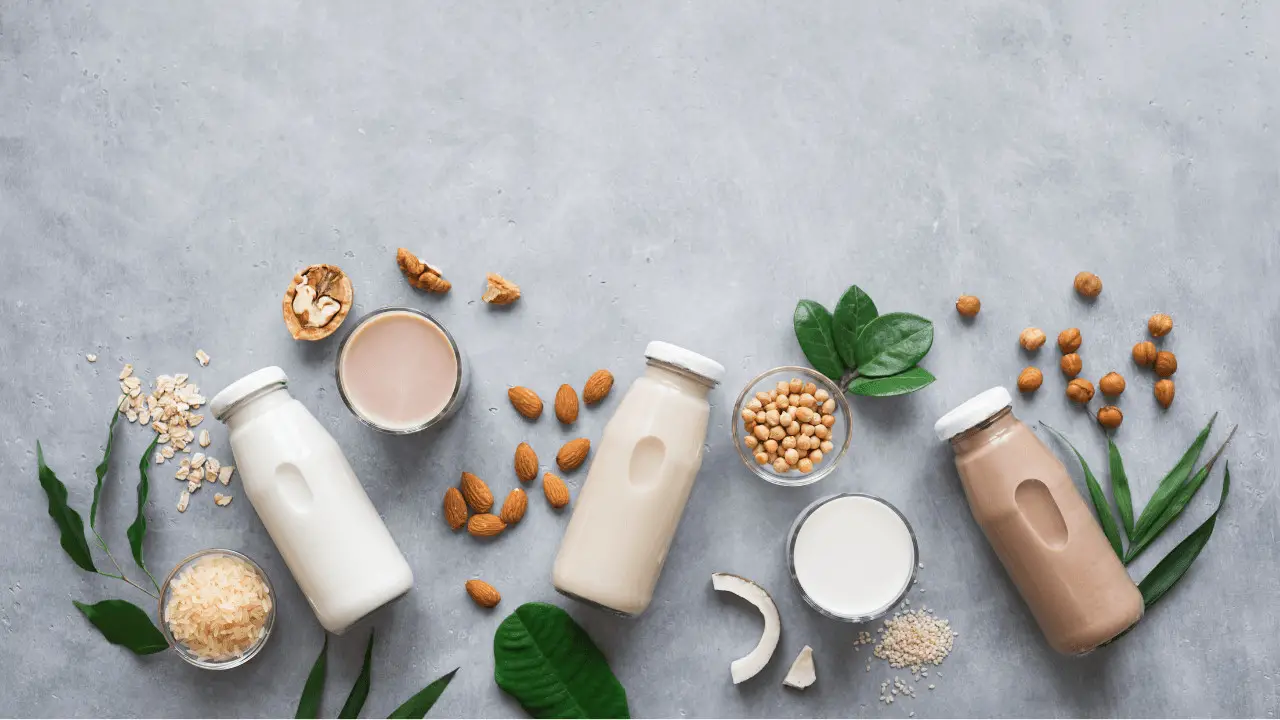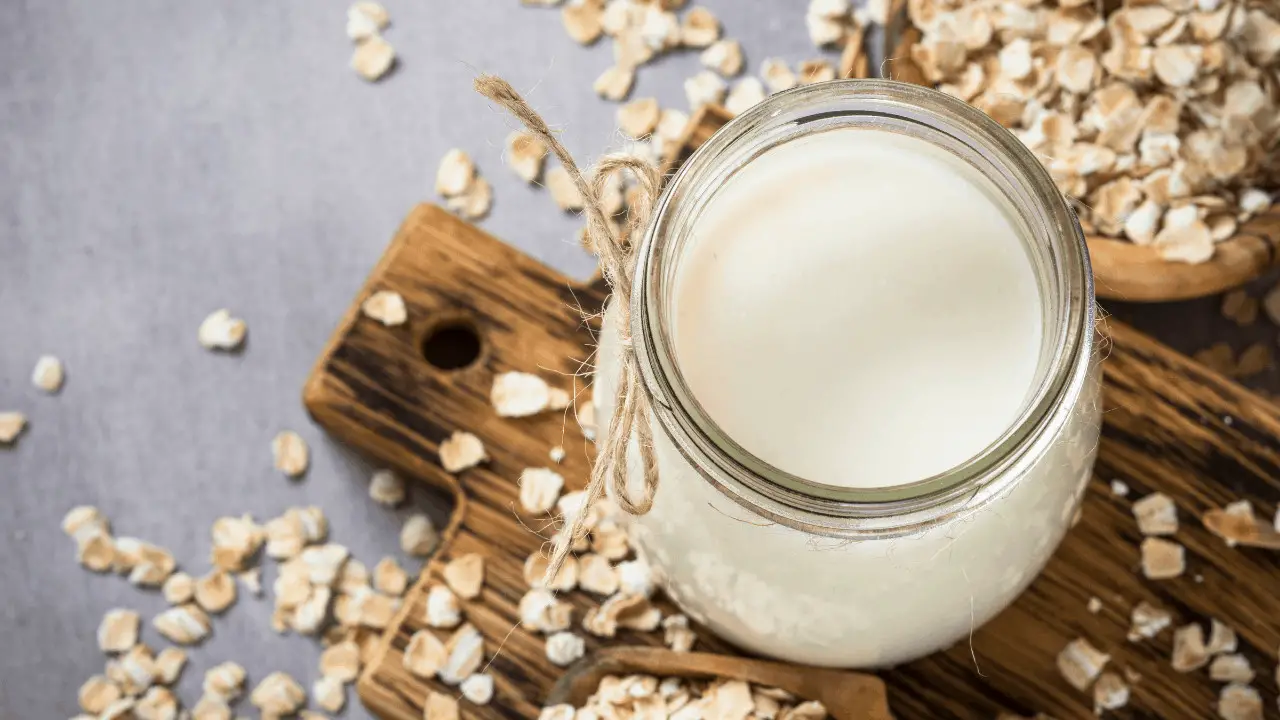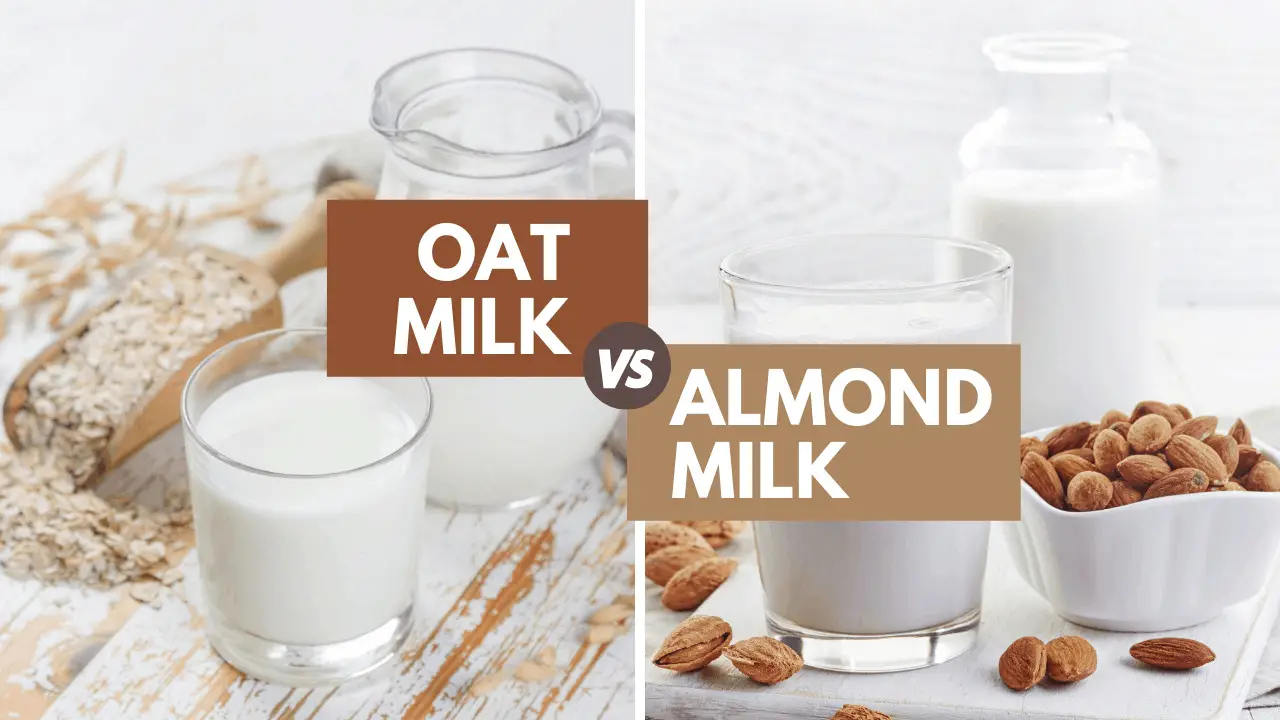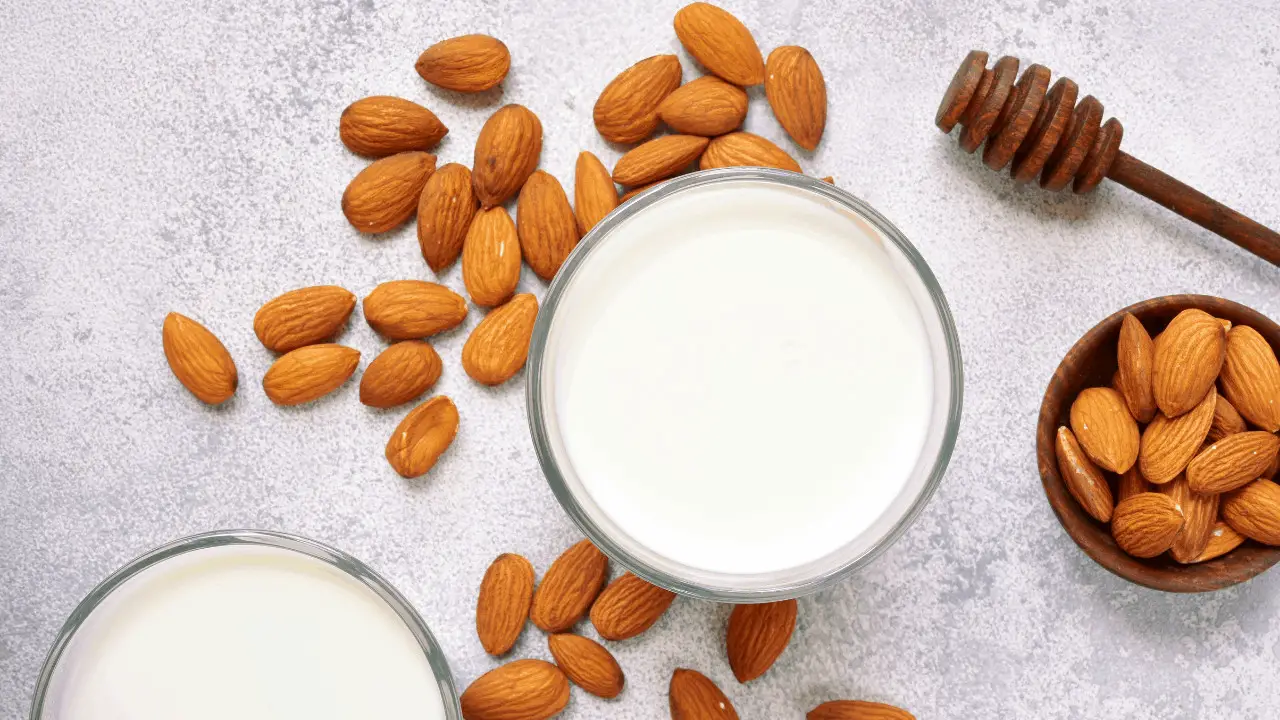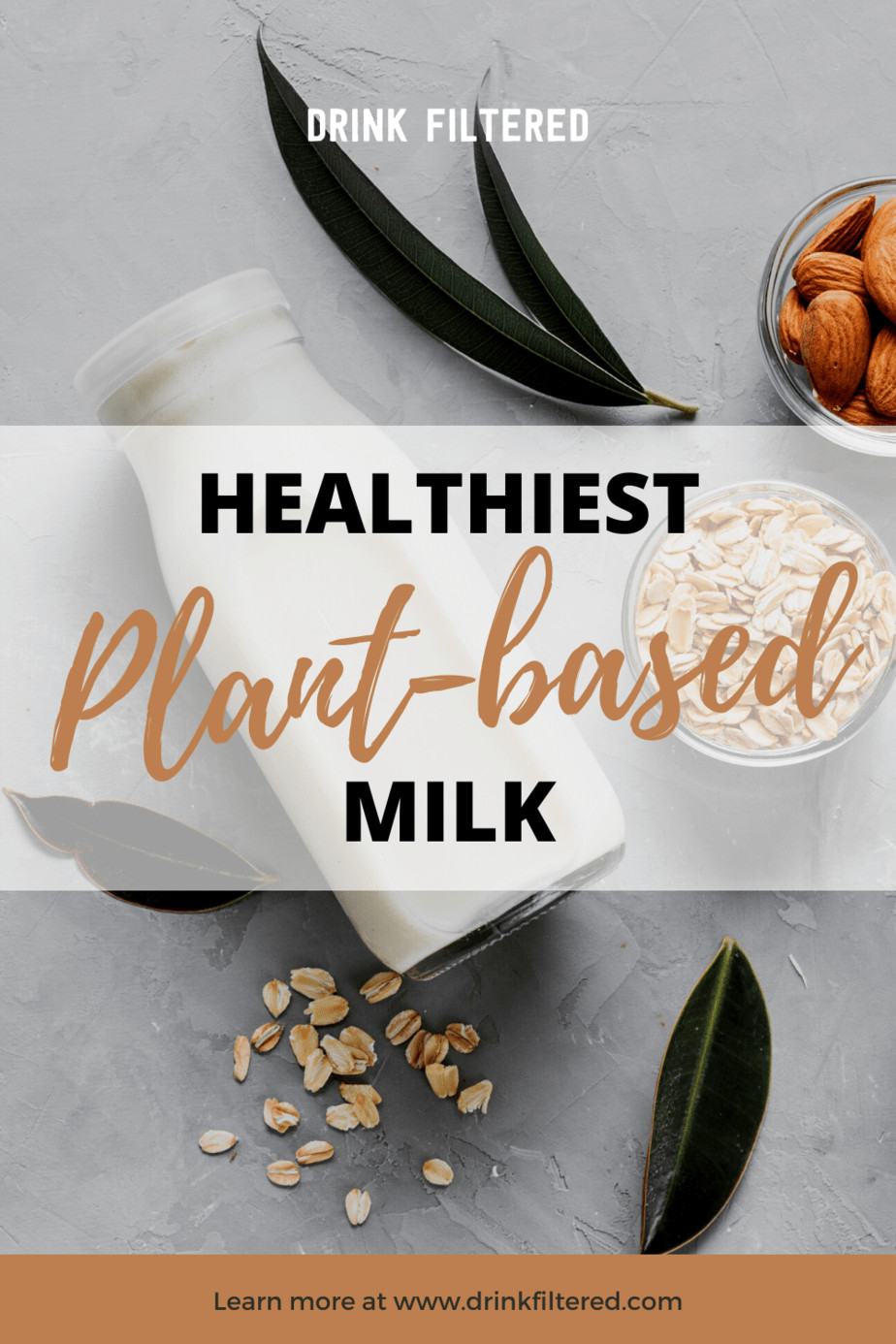- What Is The Most Popular Plant Milk?
- What’s the Difference Between Plant Milk And Animal Milk?
- Which plant milk tastes the closest to cow’s milk?
- Nutritional Profiles of the Most Popular Plant-Based Milk
- Which Plant Milk Has The Most Calcium?
- Which Plant Milk Has The Most Protein?
- Is Soy Milk Bad For Men?
- So, Which Plant Milk is The Healthiest?
- Making A Plant-Based Milk From Scratch At Home
What Is The Most Popular Plant Milk?
Almond, coconut, rice, and soy milk are the most common types of plant-based milk. Others include hemp, pea, oat, hazelnut, cashew, peanut, and macadamia. Most of these have become readily available and quite popular, with some even carving out their own niche. For example:
- Soy milk originated in China and has been consumed since the 3rd century BC. It was discovered that this milk could be consumed with experiencing the symptoms associated with lactose intolerance after consuming animal milk.
- Almond milk originated in the Levant in the 13th century. It was considered a niche pr specialty item until 2000, when it began to increase in popularity. By 2013, almond milk sales surpassed soy milk sales, and now accounts for more than 60% of plant-based milk sales.
- Coconut milk, which comes in several forms, has been common in Asian cooking for thousands of years. It can come in a can or in a carton; the canned version provides a thicker, richer coconut flavor and is often used in cooking. The carton version is often consumed as a substitute for milk. It has become quite popular as an addition to coffee, with some of the larger chain coffee shops offering it as a substitute for other plant-based milks.
- Oat milk came into the market in the mid 1990s branded under the name Oatly. As of 2019, Oatly was found in 7000 grocery stores and coffee shops, and helped to make a name for themselves through a rebrand that focused on marketing specifically as a coffee additive. This was a great move as they launched a non-dairy milk that did not “curdle” in coffee and could froth as cow’s milk did in lattes.
What’s the Difference Between Plant Milk And Animal Milk?

Plant milk is milk made from a base of water and a nut, seed, or legume.
They are often white or creamy in color like animal milk but can take on a wide array of colors depending on the ingredients. Unlike cow’s milk, the flavors vary, affected not only by the seed or nut used to make the milk but also the brand.
The biggest difference between plant-based milk and animal milk is protein and lactose content.
Animal milk (traditionally cow’s milk) contains an average of 8 grams of protein per 8-ounces, while plant based milks contain an average of 2 grams per 8-ounce serving (although soy milk does contain the most). Animal milk also contains lactose, a milk sugar, which commonly causes symptoms associated with lactose intolerance or dairy allergies. Plant-based milk does not contain lactose.
In the EU, plant milks cannot legally refer to themselves as milks. With the exception of coconut milk, plant-based milks cannot market themselves as “milks”, and use the term “beverage”. However, EU soy milk is no different from US soy milk; the only thing that had to change was the advertising and branding. In the US, the FDA is still discussing whether or not plant-based milks can continue to call themselves “milk”.
Which plant milk tastes the closest to cow’s milk?

If you are on a quest to find the plant-based milk that tastes like cow’s milk, you will be disappointed.
If you are looking for an alternative because you are lactose intolerant, but otherwise love the taste of cow’s milk, you will have better luck going lactose-free or finding another animal milk that is easier to digest. But if you don’t mind searching,, plant milk provides another alternative because unlike animal milk, the choices are extensive.
When it comes to texture and versatility, soy and oat milk will come closer to what you expect from cow’s milk. Both of these plant-based milks are naturally white and creamy and have mild flavors, which may go unnoticed in coffee or cereal.
Almond milk tends to be very thin, so it does not provide the same creamy mouth feel. If you add it to your coffee, you may find it waters down the beverage without the creaminess you expect. Adding it to your cereal will feel similar, but almond milk pairs very nicely in smoothies, as it has a slightly nutty taste.
Coconut milk can be heavy (if consumed from a can, rather than a carton) and tastes coconutty; this makes coconut lattes pleasant, but it’s not as popular in regular teas, coffees, or in cereal — unless you like everything with a hint of coconut. Choose canned coconut milk for cooking rather than drinking, and you’ll find it makes the most delicious curries and soups.
Nutritional Profiles of the Most Popular Plant-Based Milk
Nutritionally, soy milk is similar to cow’s milk, and here is why:
- One cup of soy milk contains 130 calories compared to a cup of cow’s milk which contains 125 calories.
- Soy milk has 7 grams of protein whereas cow’s milk contains an average of 8 grams.
- Soy milk is actually a better source of iron than cow’s milk as it contains 8% of the RDA compared to the 0.7% of the RDA of iron in cow’s milk.
- Cow’s milk contains 24% of the RDA of calcium, and soy milk is only 1% short with 23% of the RDA.
- The only area soy milk falls short is with vitamin 0 as it contains 0% of the RDA, while a cup of cow’s milk will provide 4.1%.
Almond milk contains fewer calories, with only 56 calories in a cup of almond milk. It also contains less protein, vitamins, and minerals. One cup of almond milk only has 1.1 grams of protein and will provide 1.6% of the RDA of calcium, 1.1% of the RDA of iron, and 0% of the daily requirement of vitamin A and vitamin C.
The calorie content of oat milk is similar to cow’s milk with 130 calories per 8-ounces, but it can also lack the other nutrients found in a cup of soy or cow’s milk. 1 cup of oat milk contains only 2 grams of protein, 1.1% of the RDA of calcium, 3.6% of the RDA of iron, and 0% of the RDA of vitamin A and vitamin C.
Many plant milk brands fortify their products with added nutrients. While oat milk or almond milk may start off lacking vitamins and minerals, many store-bought variations can still be nutrient-dense.
Coconut milk is a good source of iron, with one cup meeting 41% of the RDA, but the high-calorie content may be a turn off as there are 445 calories in one cup of coconut milk. it also has less calcium and protein, and vitamin C.
Which Plant Milk Has The Most Calcium?
Calcium can be a big factor in determining which plant milk is the “healthiest”, if calcium is something that your diet is lacking. Cow’s milk is one of the main sources for calcium in the average diet. Soy milk is the plant milk that has the most naturally-occurring calcium; however, most brands will fortify their plant-based milk with calcium. As long as you check the ingredients, oat, coconut, or almond milk can be a great source of calcium.
Which Plant Milk Has The Most Protein?
When comparing plant milks, soy milk has the most protein. What is even more interesting, is that the protein is structurally the most similar to animal-based proteins. Soy and quinoa are the only plant-based “complete” proteins. This means that they contain all 9 essential amino acids. There are 20 total amino acids, which are the building blocks of protein. Essential amino acids are not able to be synthesized by the body, as opposed to non-essential amino acids, of which the body produces naturally. . Those switching to plant milk that is not soy can mix and match their plant-based protein sources to ensure they’re consuming all the required amino acids.
Is Soy Milk Bad For Men?
Soy has a bad reputation; however, the claims that soy milk can increase breast size, cause men to grow breast tissue, or alter hormones are all unfounded.
Soybeans contain isoflavones which act as phytoestrogen, the plant version of estrogen. Unlike the estrogen produced in humans, this has a much weaker effect on the body and is unlikely to encourage breast growth. Additionally, other foods such as flax seeds and peaches also contain phytoestrogen, including some dairy products.
Most soy is genetically modified as the majority of the world’s soy crops are actually fed to livestock, and not to humans. Organic soy milk is available for those who would like to avoid foods treated with pesticides, and non-GMO soy milk is available for those who would prefer a more natural plant-based milk.
So, Which Plant Milk is The Healthiest?
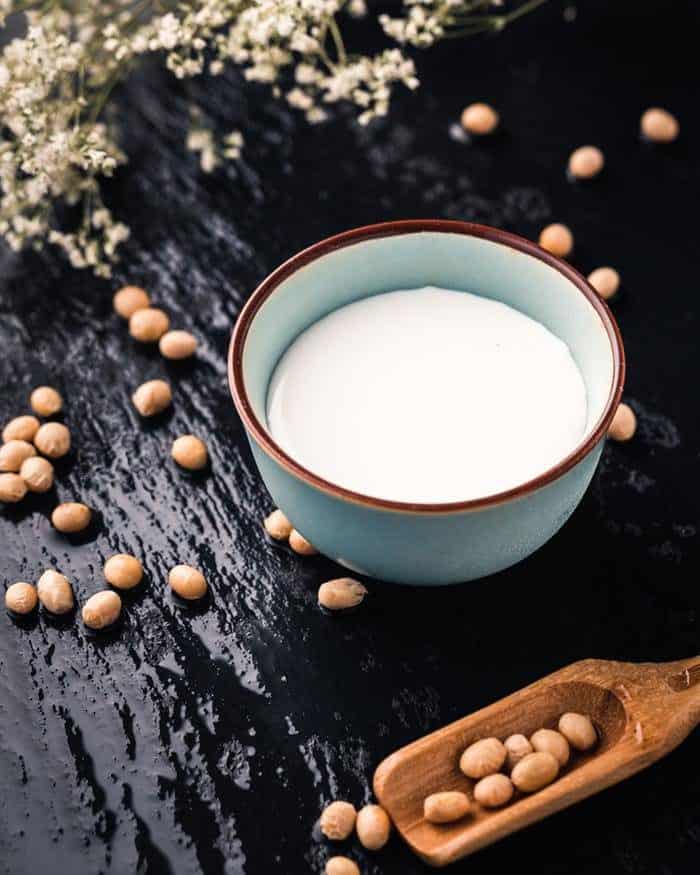
While the term “healthy” is subjective, nutritionally speaking, soy milk is the most nutritious plant milk.
Soy milk is the closest milk to cow’s milk in terms of calcium, protein, and vitamin content. The fact that it has a decent amount of iron gives it an advantage over other plant milk, especially as it can be difficult to consume enough iron on a vegan diet. Although, iron supplements and iron-fortified foods can promote adequate iron consumption.
As soy is an allergen, some people will opt to reduce their intake of soy milk and tofu, as they can consume other plant milk. Plant-based milks are also interchangeable, meaning that they can each be consumed for different purposes; one for coffee, one for cooking, and one for drinking.
When choosing plant-based milk, the most important thing is to check the ingredients for added vitamins and minerals and try to avoid sweetened versions, which can add empty calories to your diet. Otherwise, choose based on your preference or your method of use!
Making A Plant-Based Milk From Scratch At Home
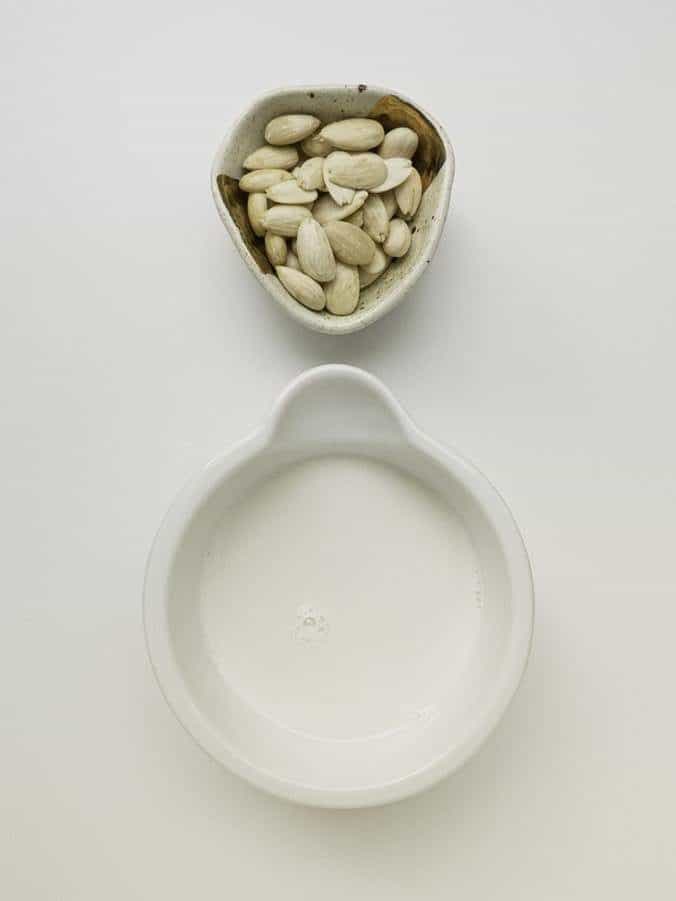
Some of the hesitation from consuming store-bought plant milk is the presence of emulsifiers and preservatives. Note that these are added to prevent the milk from separating. For those who wish to eat as naturally as possible, you can make your own plant milk. Making plant milk usually requires the following steps:
- Soaking the nuts or legumes
- Adding natural sweeteners and other additional flavorings such as vanilla pods and citrus
- Blending the mix with water
- Straining the mix, separating the husk from the milk.
Have you recently switched to a plant-based diet, or incorporated a new type of plant-based milk into your lifestyle? Let us know your favorites and why by contacting us through the link below!

